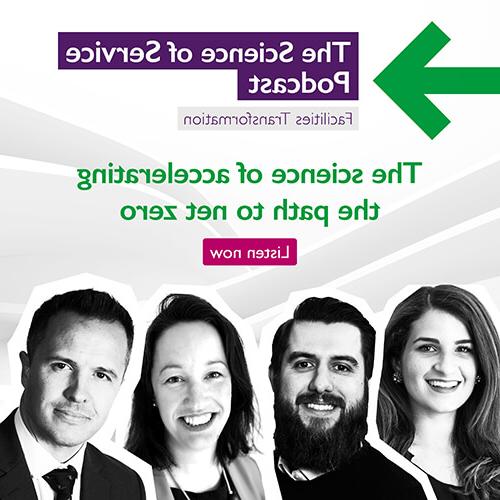Time and cost spent on carbon reporting leading to decarbonisation delays
- Seven out of ten (70%) sustainability leaders believe that the time and cost spent on reporting admin has driven decarbonisation delay as resource constraints are hampering action on sustainability goals
- Over half (55%) say that too much admin is involved in sustainability reporting with over a third (37%) looking to outsource it
- Sustainability leaders also say the volume of reporting is increasing pressure with two thirds (66%) now publishing an external sustainability report that is separate to their annual report, as well as reporting to external regulatory frameworks
Mitie, the UK’s leading facilities management and transformation company, has unveiled new survey findings revealing that the time and cost constraints from sustainability reporting are hampering progress towards sustainability goals for many organisations.
Over half (55%) of sustainability leaders surveyed agreed that sustainability reporting requires too much admin and over a third are considering outsourcing their reporting as they think is “a waste of time”. Almost half (46%) felt that their organisation spends too much time on reporting and a similar number (45%) also said that too much money is spent on it. This is having a counterproductive approach as seven out of ten (70%) said that the resources spent on reporting admin directly impacts their ability to action their sustainability strategy which is in turn delaying decarbonisation.
Specifically, three in ten (32%) said they could better use these resources to develop their carbon reduction plans whereas others would spend it collaborating with others in their industry to drive forward progress to net zero (30%) and a similar amount (29%) would use it to invest in nature or biodiversity.
Almost a quarter (24%) would also look to put this resource to good use outside of decarbonisation and would instead focus on giving back to the community or strike up partnerships with charitable organisations if less time was spent on reporting.
Reporting volume reaches new heights
Sustainability leaders recognised that part of the pressure on reporting is coming from sheer volume with two thirds (66%) of organisations now publishing an external sustainability report that is separate to their annual report as well as reporting to external regulatory frameworks. This rises to more than four in five (83%) of organisations that have more advanced strategies and have set and validated Science Based Targets initiative (SBTi) emissions reduction targets, aligned with the Paris Agreement.
Over a quarter (26%) now count the Board and C-suite of their organisation amongst the stakeholders most likely to scrutinise their sustainability data with nearly nine out of ten (88%) of organisations producing reports for them regularly. Two thirds (66%) do this at least once every three months.
Most have reporting software but would switch to save time and money
In a bid to streamline reporting processes, four fifths (79%) have now invested in digital carbon reporting software. Yet the challenge of collecting data from multiple sources is still particularly laborious for over three in five (64%) respondents.
Almost half (46%) have developed their software in house but almost two fifths (38%) said they would switch to a new software provider if it would help them to save time with and over a third (35%) saying they would switch to save money.
Others said they would look elsewhere if there was a provider that could help them better prepare for upcoming legislation (27%) and almost a quarter (24%) would make the swap if they thought it would help them to make better decisions about their sustainability strategy, indicating appetite for expert advice and a full carbon reporting service rather than solely automation software.
Despite the intense nature of reporting, close to one fifth of respondents (17%) admitted they still rely solely on manual processes when it comes to reporting including Excel spreadsheets and hard copy. The cost to invest in software was cited as the biggest barrier to its adoption.
Catherine Wheatley, Head of Data Science and Energy Services, Mitie, said:
“Sustainability reporting has inadvertently become a burden for organisations. Our findings show that the time and resources dedicated to reporting are leading to a decarbonisation delay as time is spent on admin and problem solving rather than action and adding value to their organisation as intended.”
“However, despite the challenges posed, it’s encouraging to see senior stakeholders engaging with reporting, recognising its pivotal role in shaping business strategy. This helps to give sustainability leads the leverage to make a case for investment in the resources they require to support seamless reporting so they can stop stalling on sustainability and focus on the all-important action towards goals.”
In March, Mitie launched its new managed carbon reporting and reduction service, ‘Emissions Intelligence’, in partnership with Salesforce to empower organisations to be more confident in their emissions reporting, improve their efficiency and increase the transparency of their progress towards net zero goals. As an experienced decarbonisation partner, Mitie works with customers including Lloyds Banking Group, Essex County Council and Vodafone to deliver their sustainability projects and work towards net zero.
Read next
Legislation lethargy hits UK organisations as volume and intensity of sustainability reporting increases
A new survey from Mitie, the UK’s leading facilities management and transformation company which helps organisations to decarbonise their built environment, has found that UK organisations are feeling overwhelmed by the strain of sustainability…

The Science of Service Podcast: We can be net zero heroes
For many of us, former Vice President Al Gore’s 2006 documentary, An Inconvenient Truth, was the first time the risks of climate change really registered. Gore skilfully used scientific evidence to illustrate the impact…
Mitie’s decarbonisation targets validated by the SBTi
Mitie has received certification by the Science Based Targets initiative (SBTi), confirming that its near and long-term greenhouse gas (GHG) emissions reduction targets meet the SBTi’s criteria and recommendations. Scienced-based targets show organisations how…
 Skip to content
Skip to content